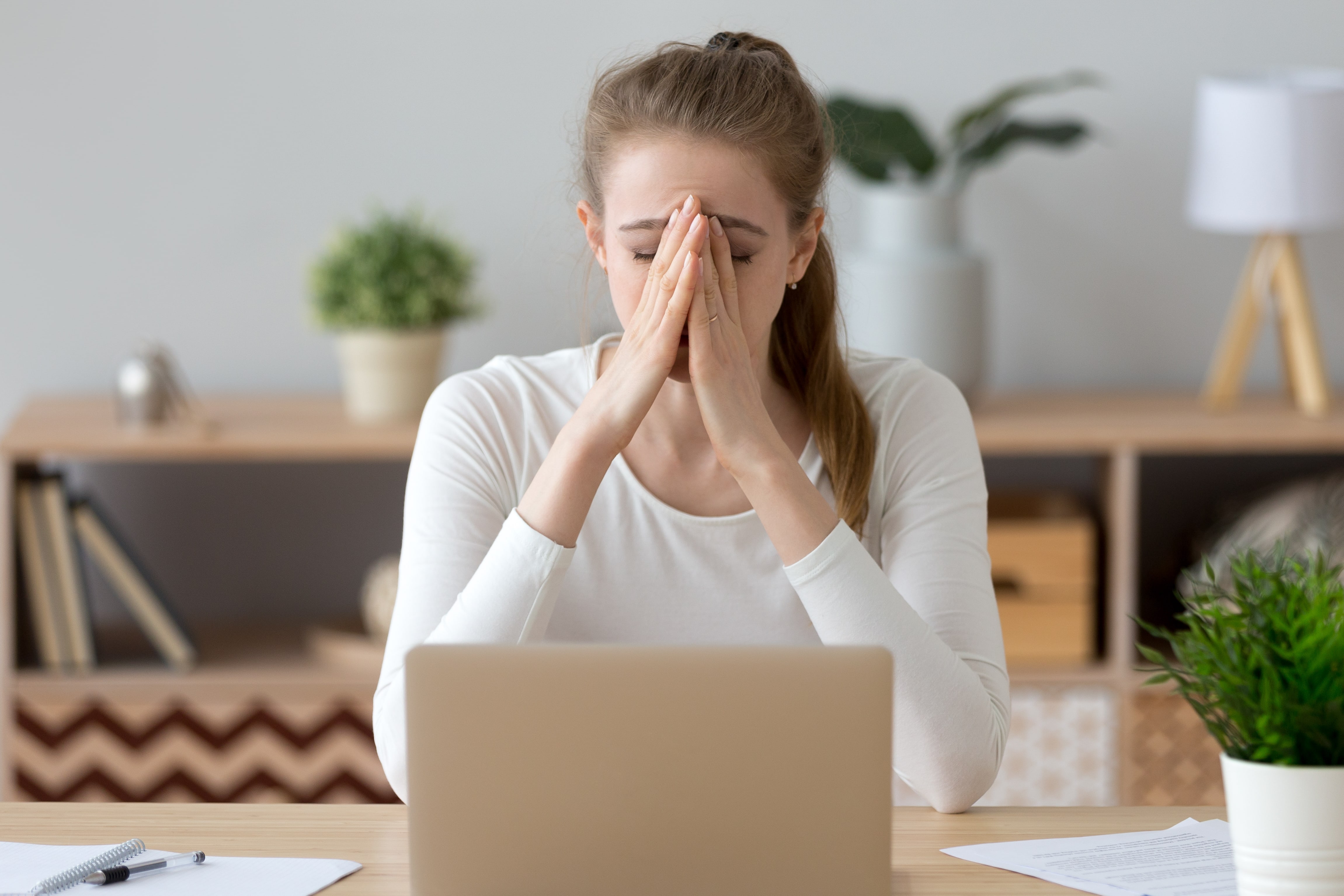The global health crisis has triggered a number of negative emotions, like panic, stress, frustration and anxiety. We might find ourselves worrying about our own health, the health and safety of our loved ones, as well as the state of the world.
Anxiety is a normal emotion that occurs when we think about a problem that might occur in the future. The thoughts in our mind that make us feel anxious are known as worries. Not all anxiety or worry is bad – in limited doses, it can motivate you to be prepared for problems.
However, your anxiety might be a cause of concern when:
- You find yourself worrying all the time
- Anxiety is your common reaction to most situations
- Your anxiety feels excessive and out of control
- You are unable to go about your day-to-day life due to anxiety
Chronic worry or anxiety can lower immunity and cause a number of health problems, including irritable bowel syndrome, nausea, fatigue and pain. This is why it’s important to watch out for chronic anxiety and take steps to manage it in a healthy manner. But first, let’s understand why people feel anxious.
What causes anxiety?
Your early experiences with your caregivers have a significant impact on how likely you are to worry in life. You may have developed a tendency to worry if you did not feel safe or protected while growing up. Maybe you grew up with overprotective parents, divorced parents, or you had to take on the caregiver role for your younger siblings.
Anxiety is caused by internal and external factors. In some cases, recognising certain internal sensations in your body – such as an increase in heart rate or difficulty breathing – can trigger anxiety. External factors like an impending presentation or exam can make people feel anxious as well.
When situations aren’t predictable, anxiety is commonly experienced. You might feel anxious about what will happen in the future to you, your loved ones, your relationships or your work. You could also worry about losing something valuable that you already have, such as health, love, wealth, freedom or your life. Amidst the ongoing health crisis, your worries may revolve around the spread of the virus, falling sick, having a loved one contract the illness, financial trouble, emotional instability, lack of household resources and uncertainty about what lays ahead.
Anxiety is often maintained by certain thoughts and beliefs about the usefulness of worrying. For example, you might believe that worrying could prepare you for disappointment, or keep you motivated to solve problems; it might also make you feel safer or serve as a way to express your concern towards someone. If you tend to believe that worry serves any of these positive functions in your life, you may be more prone to worry often and for longer.
Strategies to manage anxiety
Anxiety, when chronic, can seem uncontrollable and can affect your sense of wellbeing. Amidst the global health crisis, it is important for you to stay calm and tackle anxiety effectively. Here are some strategies that can help.
Recognise unhealthy anxiety
Although anxiety serves a function in helping you prepare for situations you worry about, dwelling on these worst-case scenarios can make you feel helpless. It can even prevent you from focusing on other tasks. Learning to recognise when your anxiety becomes unhealthy can make it easier for you to act early.
Plan
Use your anxiety constructively. Ask yourself what you are afraid of, what you can do for a more favourable outcome, and how you can prepare for an unfavourable outcome.
Restrict the time you worry
Try to dedicate specific periods during the day to worry. Put off any worrisome thought till the allotted time. You can spend around 20 minutes worrying about whatever has been making you feel anxious. Once this time is up, wait till the next allotted time. This can help you feel more in control of your thoughts and can reduce the effect of worry on other activities.
Practise mindfulness
When you feel anxious, try to focus on your senses. You can name things you can see or hear around you, or pay attention to the sensation of the ground under your feet. This can help you stay centred and bring your thoughts back to the present moment.
Remind yourself that thoughts are not facts
Just because you have a negative thought, doesn’t mean the thought is true. Similarly, worrying about fearful events does not mean that they will happen. Try to distance yourself from your thoughts. You could do this by asking yourself how likely it is that a bad outcome you are worried about will occur. You can also let go of your thoughts by asking yourself if thinking a certain way is helping you or causing you distress.
Engage yourself
Engage in other activities like work, or something you enjoy, like watching TV. Keep bringing your attention back to what you’re doing, and you will find that your focus will automatically be taken off the worry.
Acknowledge how you feel
Suppressing your emotions can make them come back stronger. Your feelings can inform you that there is something that needs your attention – so try to accept the way you are feeling without judging or labelling it.
Now that you’re aware of different coping strategies, you can start using them in your own life. A bit of trial and error might be involved – so be patient with yourself. Remember to take things one day at a time, and trust that you will eventually find strategies that work for you and bring much-needed relief from your anxiety.


